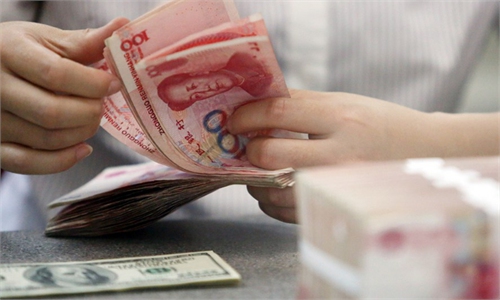Revoking China’s PNTR will harm US economy, global supply chain: observers
Globalization an irreversible trend despite obstruction: observer

A cargo ship sails near Qingdao Port in East China's Shandong Province. Photo: VCG
After repeated hype by certain US politicians, a US Congressional anti-China advisory panel called for ending the country's Permanent Normal Trade Relations (PNTR) with China. Chinese observers argue that this move stems from a Cold War mentality with little regard for the serious impact the move could have on the American economy and even the global supply chain.
In addition to the extremely lengthy 793-page annual report, the US-China Economic and Security Review Commission also published a separate nine-page Comprehensive List of Recommendations, with Item 18 calling for the revocation of China's PNTR status, which has been in effect for more than two decades.
"The PNTR status allows China to benefit from the same trade terms as US allies… repealing PNTR could reintroduce annual reviews of China's trade practices, giving the US more leverage to address unfair trade behaviors," the panel set up by the US Congress in October 2000 said in the report.
It is a regular advisory report and holds no binding power, according to Zhou Mi, a senior research fellow at the Chinese Academy of International Trade and Economic Cooperation.
Prior to this report, several anti-China politicians had introduced similar proposals or bills, with John Moolenaar, chairman of a House committee, being the most recent example. He introduced a bill on November 14, proposing similar measures.
The repeated hype reflects entrenched political bias and a Cold War mind-set of certain US politicians who have deliberately made such moves to serve their own political agendas, Li Yong, a senior research fellow at the China Association of International Trade, told the Global Times on Wednesday.
They are ignoring the potential harm these actions could inflict on the US itself, as revoking China's PNTR status would significantly affect the US economy, which is still struggling to recover from inflation, Li noted.
US industries and think tanks have been warning about the potential costs of revoking the status to the US economy and its people.
The Peterson Institute for International Economics (PIIE), a US think tank based in Washington DC, released a report in September, warning that "revoking China's PNTR status would cause higher inflation and a short-term decline in US gross domestic product relative to baseline from which the economy never fully recovers."
"The loss of output and employment would be felt unevenly across the economy, with agriculture, durable manufacturing and mining taking the biggest hits. Stock market prices would fall, with agricultural, durable manufacturing and mining firms absorbing the biggest declines. All of these impacts would be magnified if China retaliates," read the report.
Regretting a decision made 25 years ago would ironically "damage the US industrial sector and contribute to a wider US trade deficit," said the PIIE report.
Moreover, if US politicians insist on pushing forward such a move, it would have an impact on economic and trade relations between China and the US, the two largest economies in the world, as well as far-reaching repercussions for global supply chains, Zhou told the Global Times on Wednesday.
"However, globalization is an irreversible trend. While the US has pursued unilateral trade protectionism in recent years, it cannot turn back the clock. Ultimately, market players will find their way out of the political maneuver and in turn, influence policymakers," Zhou said.
On November 11, Chinese Foreign Ministry spokesperson Lin Jian said at a press conference that some US politicians are attempting to turn back the wheel of history and pull China-US trade and economic relations back to the Cold War era.
Removing China's PNTR status "violates WTO rules, and it will only harm the common interests of both countries and disrupt the global economy. We urge certain US Congress members to earnestly abide by WTO rules and stop saying or doing anything that does no one good," Lin said.


